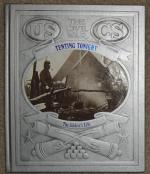|
This section contains 8,557 words (approx. 29 pages at 300 words per page) |

|
SOURCE: Sharpe, Kevin. “Private Conscience and Public Duty in the Writings of James VI and I.” In Public Duty and Private Conscience in Seventeenth-Century England: Essays Presented to G. E. Aylmer, edited by John Morrill, Paul Slack, and Daniel Woolf, pp. 77-100. Oxford: Clarendon Press, 1993.
In the following essay, Sharpe argues that an understanding of James's perceptions of conscience and duty is central to any study of his work.
Conscience: ‘a man cannot steal, but it acuseth him; a man cannot swear but it checks him; a man cannot lie with his neighbour's wife but it detects him. 'Tis a blushing shame fac'd spirit that mutinies in a man's bosom …’
—2nd Murderer, Richard III, I. iv. 133-9
Let not our babbling dreams afright our souls; Conscience is but a word that cowards use, Devis'd at first to keep the strong in awe. Our strong arms be our conscience...
|
This section contains 8,557 words (approx. 29 pages at 300 words per page) |

|


